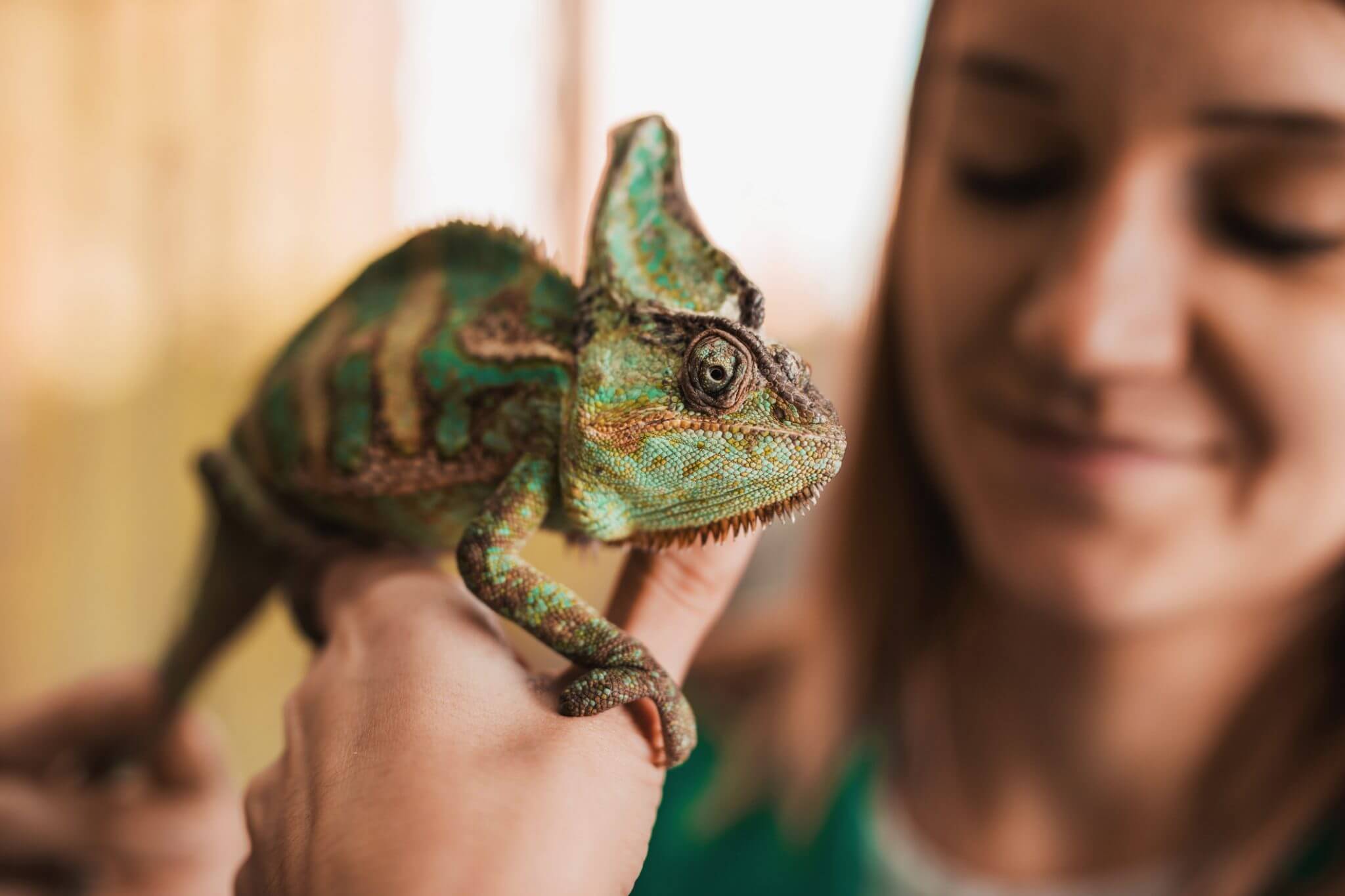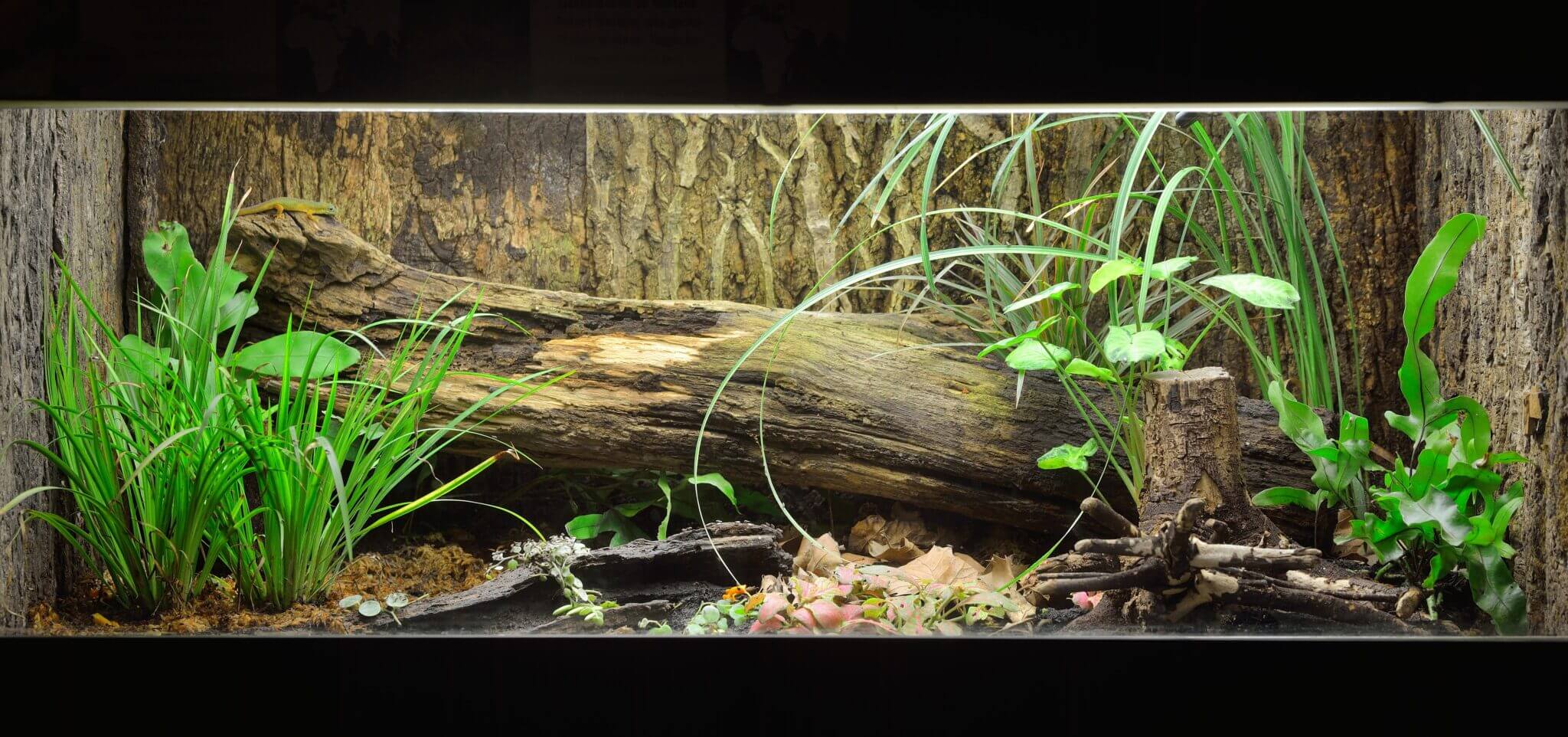
Reptile husbandry can be fun and exciting. Unlike dogs and cats that are warm-blooded and able to live in our homes without us making major modifications, caring for reptiles can be a bit more demanding at first. These animals are cold-blooded and need a well-designed enclosure to survive and thrive indoors.
It would help if you found out as much as you could about what to feed your pet reptile from a vet or reptile breeder beforehand. At University Animal Clinic, we help our clients take care of various exotic pet reptiles, including snakes, chameleons and geckos. Here are some of our most frequently asked questions and answers.
What Kind Of Environment Do Pet Reptiles Need?
Choose the type of enclosure that’s appropriate for the species of reptile you’re trying to nurture. Make sure the size is right and ensure that it will accommodate your pet conveniently after at least six months of growth.
What Type Of Material Should I Choose?
Glass is commonly used for most reptile enclosures because the owners want to be able to see them. You may need to protect the reptiles from striking the glass by placing plants in front of it.
What Type Of Substrate Should I Place Inside The Enclosure?
Repti-carpet and paper are frequently used as substrates in reptile enclosures. It’s essential to choose a type of substrate that will not harm your pet. Geckos, for instance, should not be placed in fine sand because they can inhale it, causing respiratory issues. In general, we recommend using Repti-carpet instead of sand as we’ve seen many reptiles become impacted from ingesting sand when they eat.
What Is The Ideal Temperature For My Pet Reptile?
Since they’re cold-blooded animals, reptiles depend on external heat sources to keep themselves warm. This means they need to have daily access to adequate light and sunshine. Getting the right amount of heat will affect their appetite, how well they defecate and other internal body functions.
Every reptile species has its temperature preferences. Reptiles need access to a range of temperatures every 24 hours. Your enclosure should have warm areas and cold areas across a range of temperatures. You can achieve this by installing a heater at one of the ends of your vivarium.
How Much Sunshine Does My Reptile Need Daily?
Reptiles need to have the standard 12 hours of daylight and 12 hours of nighttime. During the day, they need a light that offers the complete spectrum, with both UVA and UVB rays. This is necessary for the proper production of vitamin D3, which helps them to metabolize calcium and grow healthy bones.
Without adequate calcium, the pet could develop metabolic bone disease. This condition will lead to brittle bones as well as deformed faces and legs, potentially causing them to have trouble walking. If you’re keeping your pet indoors, you need to purchase a fluorescent light source that provides the full spectrum of light.

How Much Humidity Does The Reptile Enclosure Need?
Reptiles like water dragons prefer a more humid habitat. Depending on the species, you may need to provide both a water bowl and a soaking dish that the reptile can use to cool its body.
Call Us Or Schedule A Visit Today
Contact University Animal Clinic at (941) 253-5218 today or schedule a visit online to get the best care for your pets. We treat cats, dogs and a host of exotic animals, and we’re always happy to answer your reptile husbandry questions. Bring your pet to our AAHA accredited vet facility to get the highest quality care, and take advantage of our specially designed wellness care plans to reduce the cost of keeping your pets healthy.
